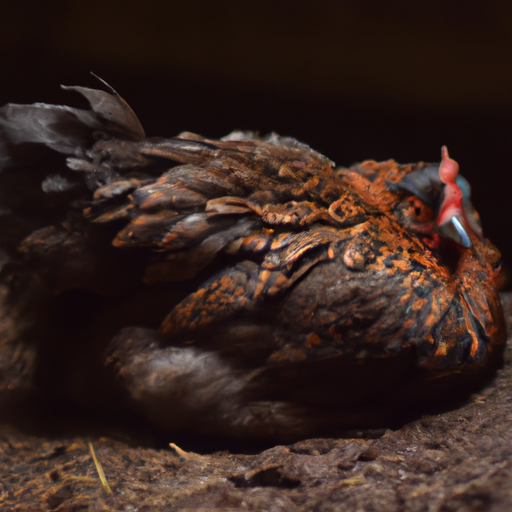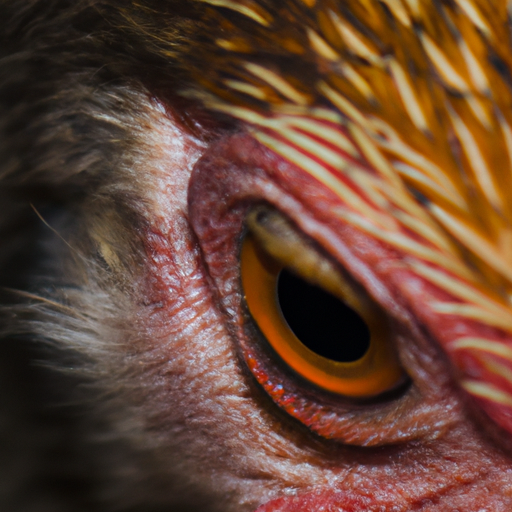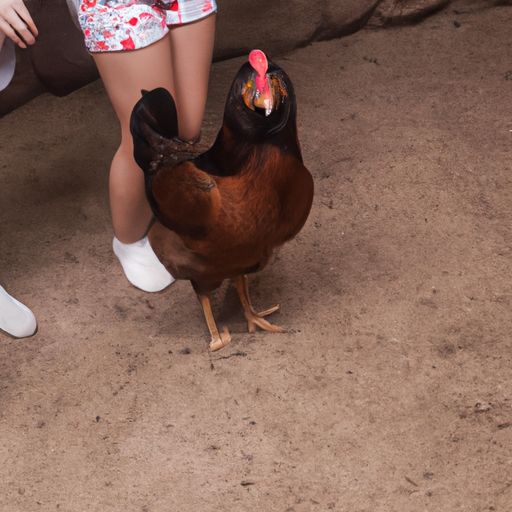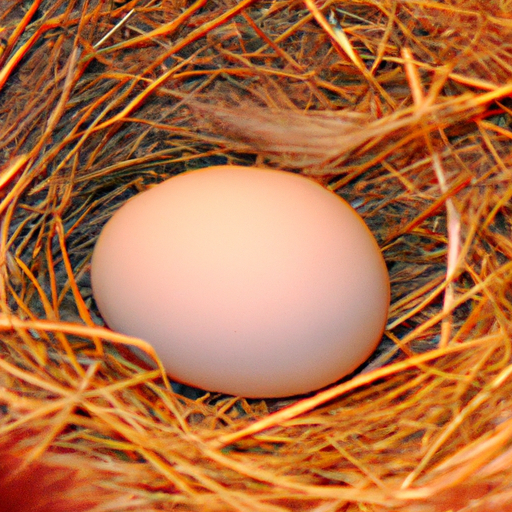Have you ever wondered why chickens dust bathe? Dust bathing is not just a quirky behavior, but an essential part of a chicken’s daily routine. Chickens dust bathe to keep themselves clean, healthy, and free from pests and parasites. In order to provide a suitable environment for your chickens to dust bathe, you can create a designated dust bath area in their coop or run, using fine sand or dirt mixed with wood ash or diatomaceous earth. By understanding the importance of dust bathing and providing the right conditions for it, you can ensure your chickens’ well-being and keep them happy and healthy.
Why Do Chickens Dust Bathe?
Chickens are fascinating creatures that engage in various behaviors to maintain their well-being. One such behavior is dust bathing, which may seem peculiar to us humans but holds vital importance for our feathered friends. Dust bathing is a natural behavior that chickens engage in to keep their feathers clean, control parasites, and establish social interactions within their flock. Understanding the reasons behind dust bathing and providing a suitable environment for it is crucial for ensuring the health and happiness of your chickens.
The Importance of Dust Bathing for Chickens
Dust bathing is not just a simple act of chickens frolicking in the dust; it serves a multitude of significant purposes. By indulging in this behavior, chickens are able to maintain the cleanliness of their feathers, regulate their body temperature, ward off parasites, and establish their place within the pecking order. It is a holistic activity that promotes both physical and mental well-being in our avian companions.
Natural Behavior and Health Benefits
Dust bathing is an instinctual behavior deeply ingrained in a chicken’s nature. You might wonder why chickens choose to bathe in dust rather than water. The answer lies in the unique properties that dust offers. When chickens immerse themselves in dust, it absorbs excess oil and moisture from their feathers, thereby keeping them clean and preventing oiliness. This natural cleaning process helps maintain the insulation provided by feathers, regulating the chicken’s body temperature and promoting overall comfort.
Additionally, dust bathing also has significant health benefits for chickens. As they roll around in the dust, it acts as a natural pesticide by suffocating and dislodging external parasites, such as mites, lice, and fleas, that may reside on their skin or feathers. This preventative measure is a vital part of hygiene and can help curb potential infestations, ensuring the well-being of your flock.
Social Interaction and Pecking Order
Dust bathing is not a solitary activity for chickens; it also promotes social interaction within the flock. Chickens often engage in communal dust baths, strengthening bonds between members and establishing their place within the pecking order. By observing their behavior during dust bathing, you can garner insights into the social dynamics of your flock. Dominant chickens usually take the prime spots in the dust bath, while subordinate members may have to settle for less desirable areas.
The hierarchy established through dust bathing can help mitigate aggression and conflict within the flock. Each chicken understands their place within the pecking order, reducing the likelihood of aggressive behavior and promoting a harmonious environment. By providing a suitable space for dust bathing, you are fostering both physical and social well-being among your chickens.
Prevention of Parasites and Skin Irritations
One of the key reasons chickens engage in dust bathing is to prevent and alleviate skin irritations caused by parasites. External parasites, such as mites and lice, can infest a chicken’s feathers and skin, leading to discomfort, itching, and potential health issues. Dust bathing serves as a proactive measure against such infestations by dislodging and suffocating these pesky pests.
The abrasive nature of the dust particles helps remove dead skin cells, excess oil, and any debris that may be present on the chicken’s body. This, in turn, reduces the likelihood of skin irritations and keeps the feathers in prime condition. By providing your chickens with an environment that supports dust bathing, you are effectively safeguarding them against parasitic infestations and promoting their overall skin health.
The Suitable Environment for Dust Bathing
Now that we understand the importance of dust bathing for chickens, it is crucial to provide them with a suitable environment that facilitates this behavior. Here are some key considerations to keep in mind when creating a dust bathing space for your flock.
Choosing the Right Location
The first step is to select an appropriate location for the dust bath. Ideally, it should be an area that is easily accessible to the chickens and away from high-traffic areas. This designated space should have a soft and loose surface, such as sand or fine dirt, to allow for proper dust bathing. Ensure that the location is sheltered from direct sunlight and harsh weather conditions, to ensure the comfort of your chickens during their dust baths.
Creating or Providing Dust Baths
Next, you will need to create or provide dust baths for your chickens. One option is to construct a specific area using wooden boards to contain the dust. This helps contain the dust and prevents it from spreading excessively. Alternatively, you can repurpose large containers or tubs, filling them with suitable dust bath materials. Whichever method you choose, ensure that the dust bath is of sufficient size to accommodate multiple chickens simultaneously.
Selecting the Appropriate Dust Bathing Materials
Choosing the right materials for the dust bath is crucial for facilitating proper dust bathing behavior. The ideal material should be soft, loose, and capable of absorbing excess moisture from the feathers whilst providing a mildly abrasive texture. Some commonly used materials include sand, fine dirt, wood ash, or food-grade diatomaceous earth. These materials aid in the cleaning and pest control aspects of dust bathing, benefiting your chickens’ overall health.
Maintaining Cleanliness and Hygiene
To ensure the effectiveness of the dust bath and the well-being of your flock, it is essential to maintain cleanliness and hygiene in the dust bathing area. Regularly check the dust bath for signs of contamination, such as feces or excessive moisture, and clean it as needed. Additionally, monitor the dust bath materials for signs of depletion or excessive dust accumulation. Replenish the materials when necessary to ensure your chickens have access to a fresh and effective dust bathing spot.
In conclusion, dust bathing is a fundamental behavior for chickens that encompasses both physical and mental well-being. By understanding the reasons behind this behavior and providing a suitable environment for it, you can ensure the health, happiness, and social dynamics of your flock. So, go ahead and create a dust bathing oasis for your chickens, and watch as they luxuriate in their natural instinct, promoting their overall health and contentment.




